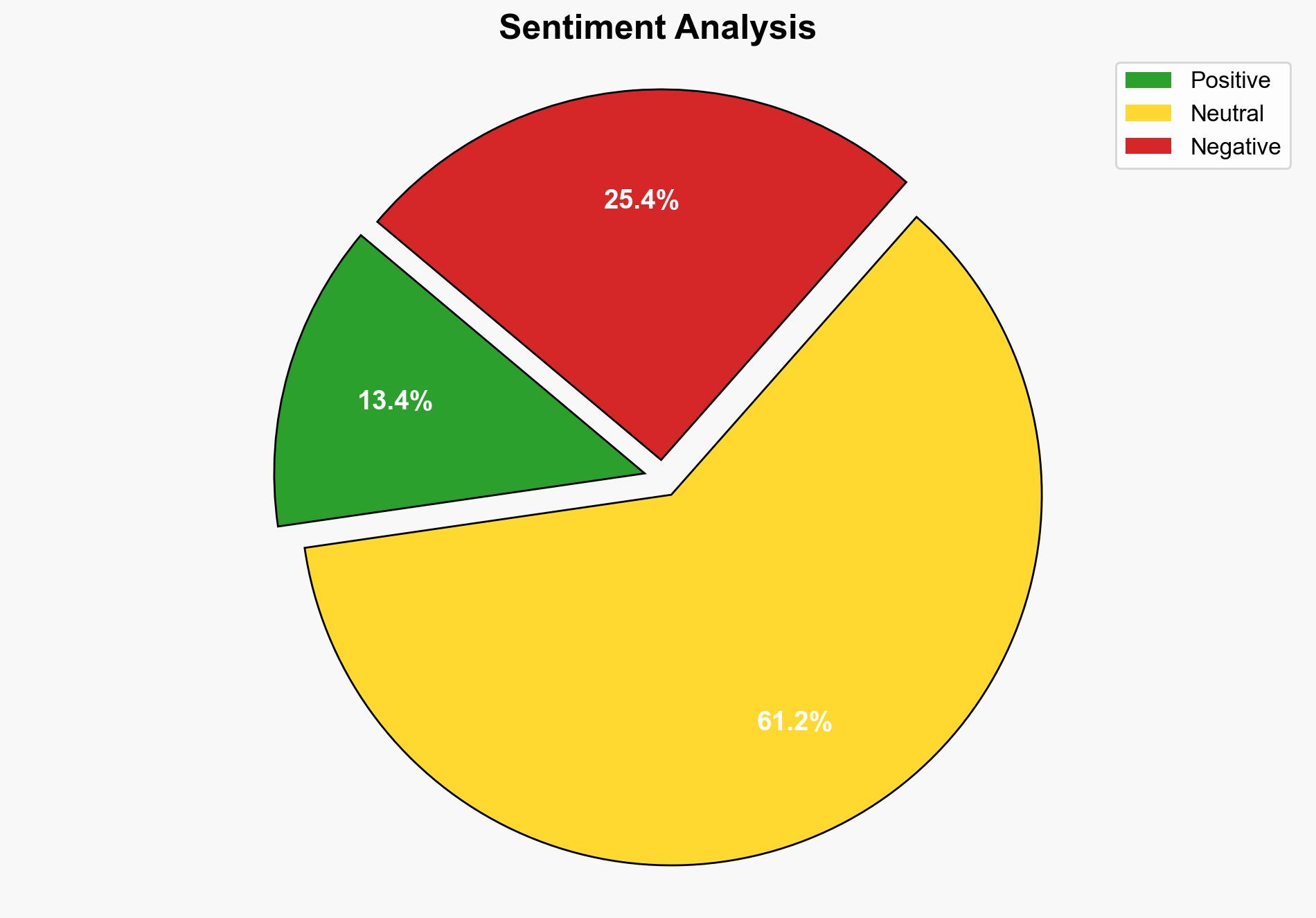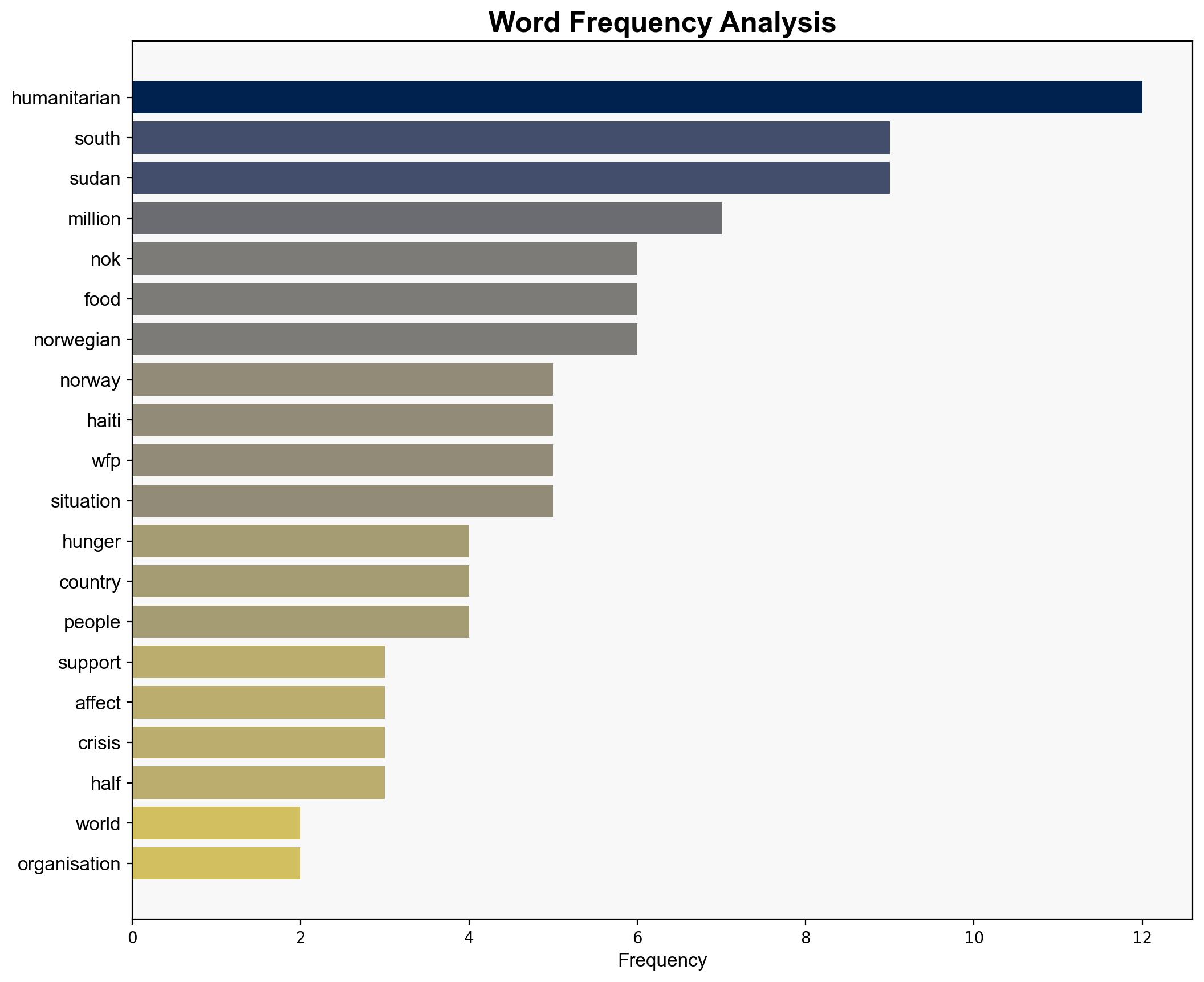Norway provides NOK 40 million to fight hunger in South Sudan and Haiti – Globalsecurity.org
Published on: 2025-07-12
Intelligence Report: Norway provides NOK 40 million to fight hunger in South Sudan and Haiti – Globalsecurity.org
1. BLUF (Bottom Line Up Front)
Norway has allocated NOK 40 million to address severe hunger crises in South Sudan and Haiti, with NOK 30 million directed to South Sudan and NOK 10 million to Haiti. This funding aims to support emergency food assistance and long-term food security efforts, primarily through the World Food Programme (WFP). The strategic focus is on mitigating the humanitarian impact of political instability and natural disasters in these regions.
2. Detailed Analysis
The following structured analytic techniques have been applied to ensure methodological consistency:
Causal Layered Analysis (CLA)
In South Sudan, the surface events include a critical humanitarian situation exacerbated by political crises and natural disasters. Systemic structures reveal a reliance on international aid due to internal conflict and governance challenges. Worldviews emphasize the need for international solidarity in humanitarian efforts. Myths suggest that external assistance can stabilize the region.
In Haiti, surface events are marked by political violence and food insecurity. Systemic structures highlight economic instability and inadequate local governance. Worldviews focus on resilience and recovery. Myths center on the potential for international aid to catalyze sustainable development.
Cross-Impact Simulation
The funding may stabilize food security in South Sudan, potentially reducing refugee flows into neighboring countries. In Haiti, improved food access could mitigate social unrest, indirectly influencing regional stability.
Scenario Generation
Best Case: Effective aid distribution leads to improved food security and stabilization in both regions.
Worst Case: Aid is obstructed by political instability, leading to minimal impact and continued humanitarian crises.
Most Likely: Partial success in aid delivery, with some improvement in food security but ongoing challenges due to systemic issues.
3. Implications and Strategic Risks
The aid could alleviate immediate food shortages, but long-term stability requires addressing underlying political and economic issues. In South Sudan, restrictions on aid delivery pose significant risks. In Haiti, ongoing political unrest may hinder effective aid utilization. Both scenarios could lead to increased regional instability if not managed effectively.
4. Recommendations and Outlook
- Enhance diplomatic efforts to ensure unobstructed aid delivery in South Sudan.
- Support capacity-building initiatives in Haiti to improve local governance and resilience.
- Monitor regional developments closely to adapt aid strategies as needed.
- Scenario-based projections suggest focusing on building local partnerships to enhance aid effectiveness.
5. Key Individuals and Entities
– World Food Programme (WFP)
– Norwegian Refugee Council
– Norwegian Red Cross
6. Thematic Tags
humanitarian aid, food security, political instability, regional stability





